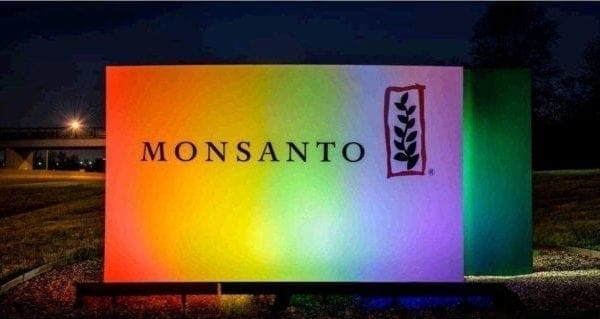 In California, where lawsuits can be found more easily than drinking water, German chemical giant Bayer has been dealt a huge legal blow. Monsanto, now a division of Bayer, was ordered to pay a whopping US$289 million in damages to a gardener suffering from cancer, allegedly from using Monsanto products.
In California, where lawsuits can be found more easily than drinking water, German chemical giant Bayer has been dealt a huge legal blow. Monsanto, now a division of Bayer, was ordered to pay a whopping US$289 million in damages to a gardener suffering from cancer, allegedly from using Monsanto products.
Given that more than 5,000 such cases are in progress in the U.S. alone, it’s fair to say things could get more complicated for Bayer.
Last year, Bayer bought Monsanto for $62.5 billion in hopes of growing its business on both sides of the Atlantic and beyond. Bayer wanted its thriving crop science division to be complemented by Monsanto’s high-performing chemicals and pesticides. The potential of capitalizing on market dynamics and resolving dissimilar sale cycles between divisions also made the deal attractive, with the possibility of making revenues more predictable regardless of commodity prices. And given Germany’s lower tax rate versus that of the U.S., the deal provided substantial tax benefits to Bayer.
This mega-acquisition was generally well received by the markets.
But Bayer entered the deal with a sober and realistic perspective. Knowing that Monsanto was damaged goods in the eyes of the public, due to years of environmental criticism, Bayer vowed to dump the name Monsanto and its brands, although the products would remain the same. Everyone wanted the name to disappear. Genetic engineering in agriculture has been a divisive issue for years.
Biotech companies like Monsanto and Bayer have been selling agricultural solutions to farmers for decades, but have only recently started to engage with the public. By the time the sector realized it never had a social licence from the public to operate, it was too late, at least for Monsanto. Words like “Monsatan” and “Frankenfoods” were widely used in media and social culture. Books and ads added to the campaign to create widespread hatred toward St. Louis-based Monsanto.
Still, some studies suggest that most consumers can’t explain what genetic engineering is nor how it relates to agriculture.
This highly polarized public discourse points to the failure of the sector to properly communicate risks to the public, back when genetically modified crops were first produced in the early 1990s.
That failure is starting to sting. After the California ruling, Bayer’s stock is in a nosedive. The Californian jury found Monsanto liable for selling glyphosate-based weed killers, including its Roundup brand, which some studies say causes cancer. It’s not clear whether it does since more than 800 published studies suggest the opposite. The Lancet, a reputable academic journal, and the International Agency for Research on Cancer both have suggested that glyphosate may cause cancer but have never stated any clear conclusions on the issue.
The jury in California deliberated for more than three days before concluding that Monsanto didn’t provide enough information to the plaintiff about cancer risks. In other words, regardless of the science, doubts remain, which may have influenced the jury in favour of the plaintiff.
Bayer will appeal, of course, but who knows how things will end up.
It remains uncertain how Monsanto’s past will contaminate Bayer, which has been in business for 155 years. Bayer and other major players in the biotech sector were never really targeted by crusades against genetically modified seeds and pesticides used in farming. Monsanto has always been the focus. But the California ruling could trigger a shift, identifying Bayer as the sector’s new menace in the eyes of opponents. With many legal cases to come, the pressure will only grow for the company.
By virtue of its well-known consumer brands like Aspirin, Bayer had a higher public profile than Monsanto ever had. But the court ruling signals that consumers have been taken for granted for far too long. Bayer will have to adapt its public relations playbook to deal with a new reality.
Dr. Sylvain Charlebois is senior director of the agri-food analytics lab and a professor in food distribution and policy at Dalhousie University.
Sylvain is a Troy Media contributor. Why aren’t you?
For interview requests, click here. You must be a Troy Media Marketplace media subscriber to access our Sourcebook.
The views, opinions and positions expressed by columnists and contributors are the author’s alone. They do not inherently or expressly reflect the views, opinions and/or positions of our publication.


